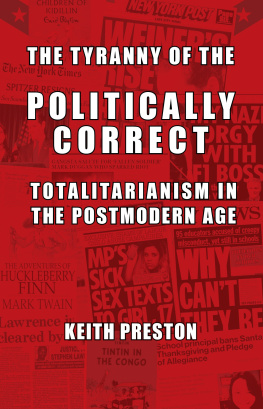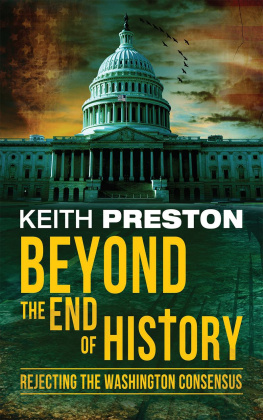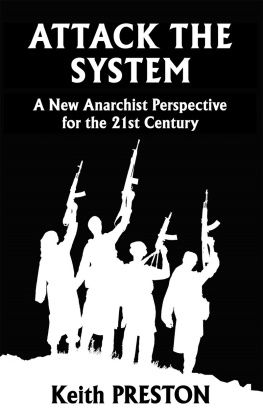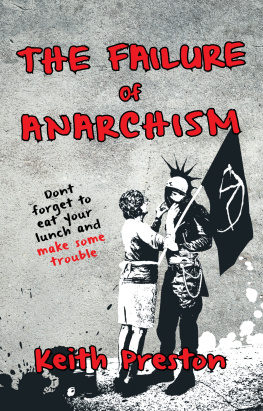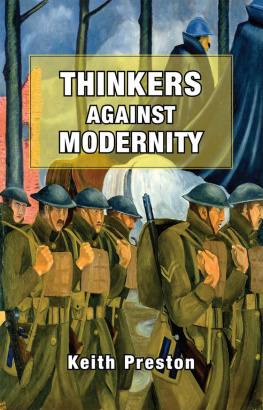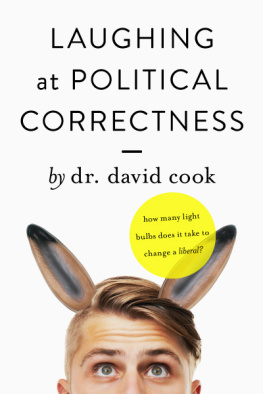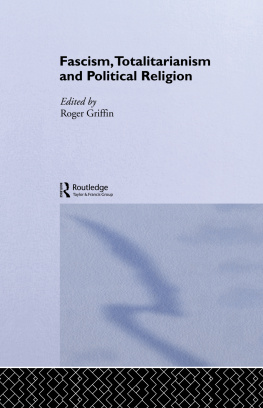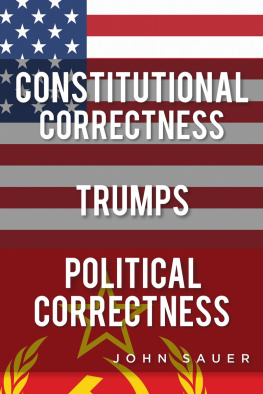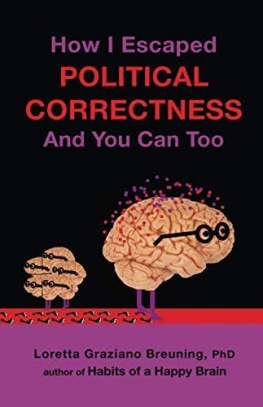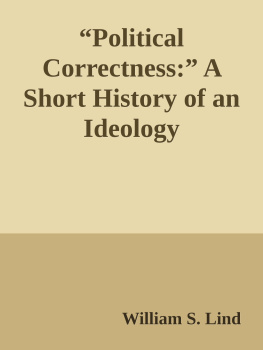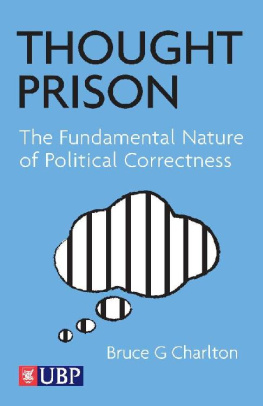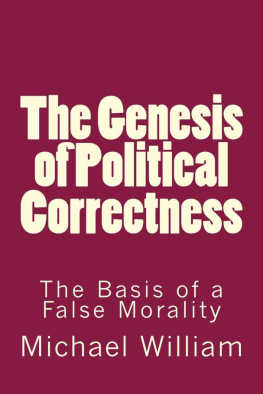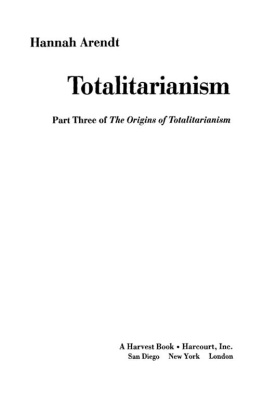The Tyranny of the Politically Correct
Totalitarianism in the Postmodern Age
by
Keith Preston
The Tyranny of the Politically Correct
- Totalitarianism in the Postmodern Age
by Keith Preston
Copyright 2016 Black House Publishing Ltd
All rights reserved. No part of this book may be reproduced in any form by any electronic or mechanical means including photocopying, recording, or information storage and retrieval without permission in writing from the publisher.
Black House Publishing Ltd
Kemp House
152 City Road
London, UNITED KINGDOM
EC1V 2NX
www.blackhousepublishing.com
Email:
Table of Contents
Introduction
A n important transformation has slowly occurred within the Western industrialized democracies since the 1990s. It is a transformation that is now widely recognized, frequently criticized, and often considered to be a source of amusement by many people even as many others seek to deny its reality, or the genuine nature of its underlying implications. The American conservative writer William S. Lind has provided an apt summary of this phenomenon.
We call it Political Correctness. The name originated as something of a joke, literally in a comic strip, and we tend still to think of it as only half-serious. In fact, its deadly serious. It is the great disease of our century, the disease that has left tens of millions of people dead in Europe, in Russia, in China, indeed around the world. It is the disease of ideology. PC is not funny. PC is deadly serious. If we look at it analytically, if we look at it historically, we quickly find out exactly what it is. Political Correctness is cultural Marxism. It is Marxism translated from economic into cultural terms. It is an effort that goes back not to the 1960s and the hippies and the peace movement, but back to World War I. If we compare the basic tenets of Political Correctness with classical Marxism the parallels are very obvious. First of all, both are totalitarian ideologies. The totalitarian nature of Political Correctness is revealed nowhere more clearly than on college campuses, many of which at this point are small ivy covered North Koreas, where the student or faculty member who dares to cross any of the lines set up by the gender feminist or the homosexual-rights activists, or the local black or Hispanic group, or any of the other sainted victims groups that PC revolves around, quickly find themselves in judicial trouble. Within the small legal system of the college, they face formal charges some star-chamber proceeding and punishment.
The question of political correctness is one that I discovered entirely by accident. As an activist on the margins of the radical Left during the late 1980s and early 1990s, I first became exposed to the censorious, inquisitorial, and hysterical attitudes and actions that are now all too frequently common among the proponents of political correctness. At the time, I was inclined to dismiss such occurrences as mere manifestations of excessive zeal by otherwise well-intentioned persons.
During the course of the subsequent decade, I came to realize that political correctness was not simply priggishness with a progressive face, but a representation of a longstanding tradition within the Left that has existed since the time of the French Revolution. The hallmark of leftist thought is its insistence upon universal human equality and the sanctity of progress. There is a pronounced tendency among leftists to adopt a dualistic worldview that defines social and political conflict in terms of the persistent struggle between the forces of reaction and progress, with the former representing darkness and evil and the latter representing justice and virtue. Consequently, leftist movements often assume a religious character in a way that reflects the messianic or apocalyptic zeal often associated with fundamentalism. Just as the fundamentalist crusader feels the need to purge the world of sin or heresy, so does the leftist crusader experience a similar impulse to engage in a holy war against particular manifestations of perceived inequality. These may include racism, sexism, homophobia, xenophobia, classism, Islamophobia, climate change denial, transphobia, patriarchy, hierarchy, looksism, ablism, fatphobia, speciesism, or any other perceived offense against equality. Meanwhile, the list of such offenses becomes increasingly absurd and implausible.
In more recent times, it has become fashionable to refer to politically correct leftist zealots of these kinds as social justice warriors. However, this label is a bit of a misnomer as the objectives of such people are quite anti-social and have little to do with justice in any recognizable sense. The essays that are included in this collection constitute an effort to explain actually what political correctness is, from where it originated, and the ominous nature of its implications. It is argued in these writings that political correctness is simply a manifestation of the tendency towards political totalitarianism of the kind that plagued the twentieth century. Political correctness is a representation of an identifiable ideological outlook that regards any limits on the pursuit of power in the name of equality and progress to be intolerable. This is clearly demonstrated by the contempt that is often shown by proponents of political correctness for the autonomy of civil society, the separation of powers, standards of due process, and the conventional liberties of speech, religion, association, property, or privacy.
I approach these questions from the perspective of a philosophical anarchist who maintains three primary concerns regarding the dangers that are posed by political correctness. First, as an anarchist, I am profoundly critical of the degree to which so many in the general anarchist milieu have adopted and internalized the ideological values and behavioral norms associated with political correctness. I consider this to be the greatest failure and most damaging weakness of contemporary anarchist movements. Second, I regard political correctness as a divisive and destructive force that undermines efforts to build movements to address the most pressing challenges of the present era, such as the ongoing centralization of capital on an international level, the rise of the surveillance state, and the hegemony of American imperialism and its related wars of aggression. Lastly, the ideological framework of political correctness is increasingly being incorporated into the self-legitimizing ideological superstructure of the state just as a theocratic regime might incorporate an interpretation of a particular religion as its own means of self-legitimization.
While I approach these questions and concerns from the perspective of a philosophical anarchist as the content of some of the essays in this work will indicate, this collection is not intended to be read solely by anarchists. Instead, this work is intended to be a resource for all of those who are concerned about the excesses of arbitrary power, whether liberal, conservative, left or right, religious or secular, socialist or capitalist. One need not agree with every claim that is made or every conclusion that is drawn in this collection in order to recognize the inherent dangers of unrestrained power masked by moral zealotry. Just as opposition to Stalinist regimes of the twentieth century normally spanned the spectrum of political opinion from conservative traditionalists to dissident socialists, so must the opposition to political correctness become the project of all those who would stand against oppression claiming legitimacy in the name of a closed ideological system.
Keith Preston

